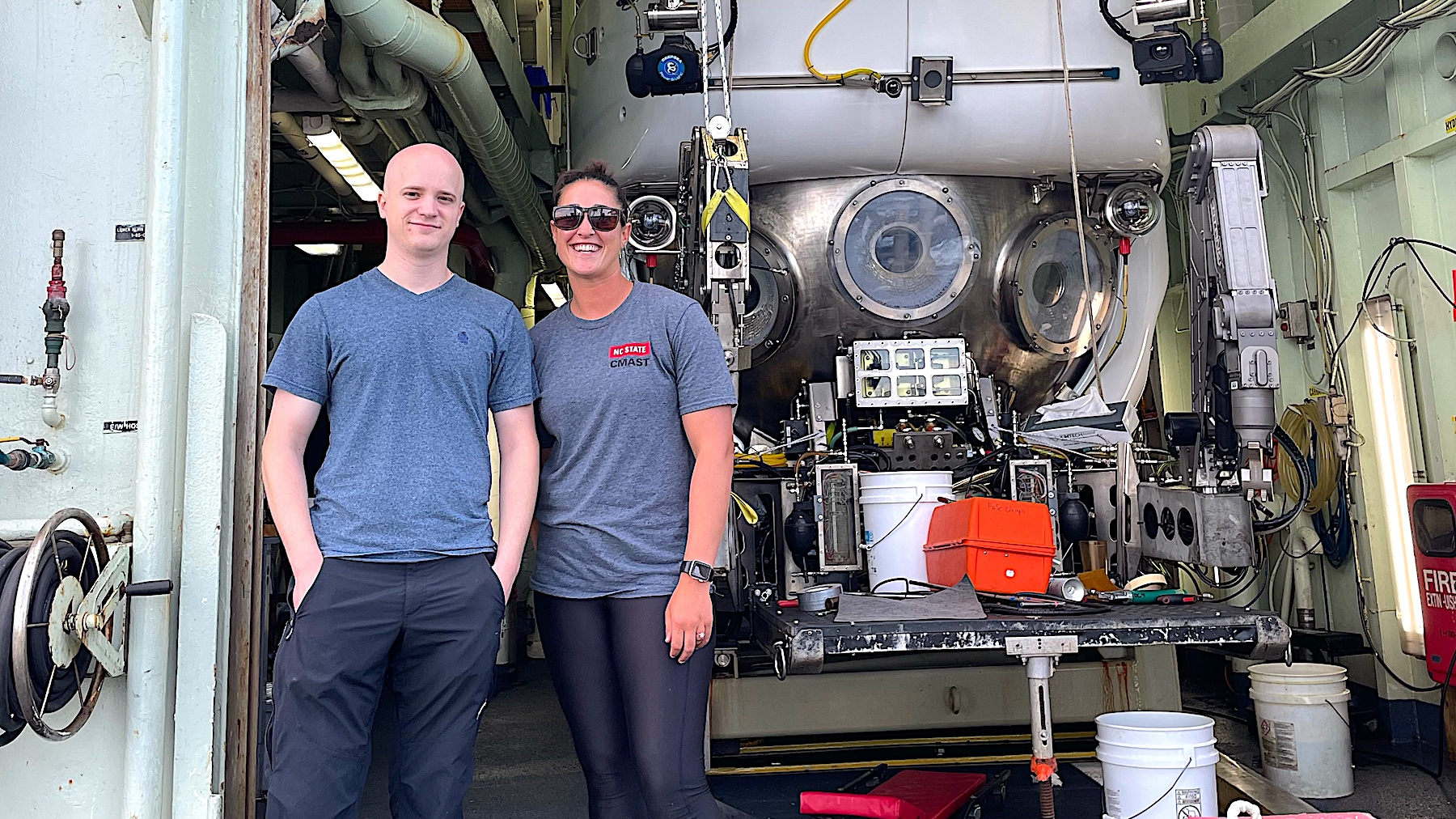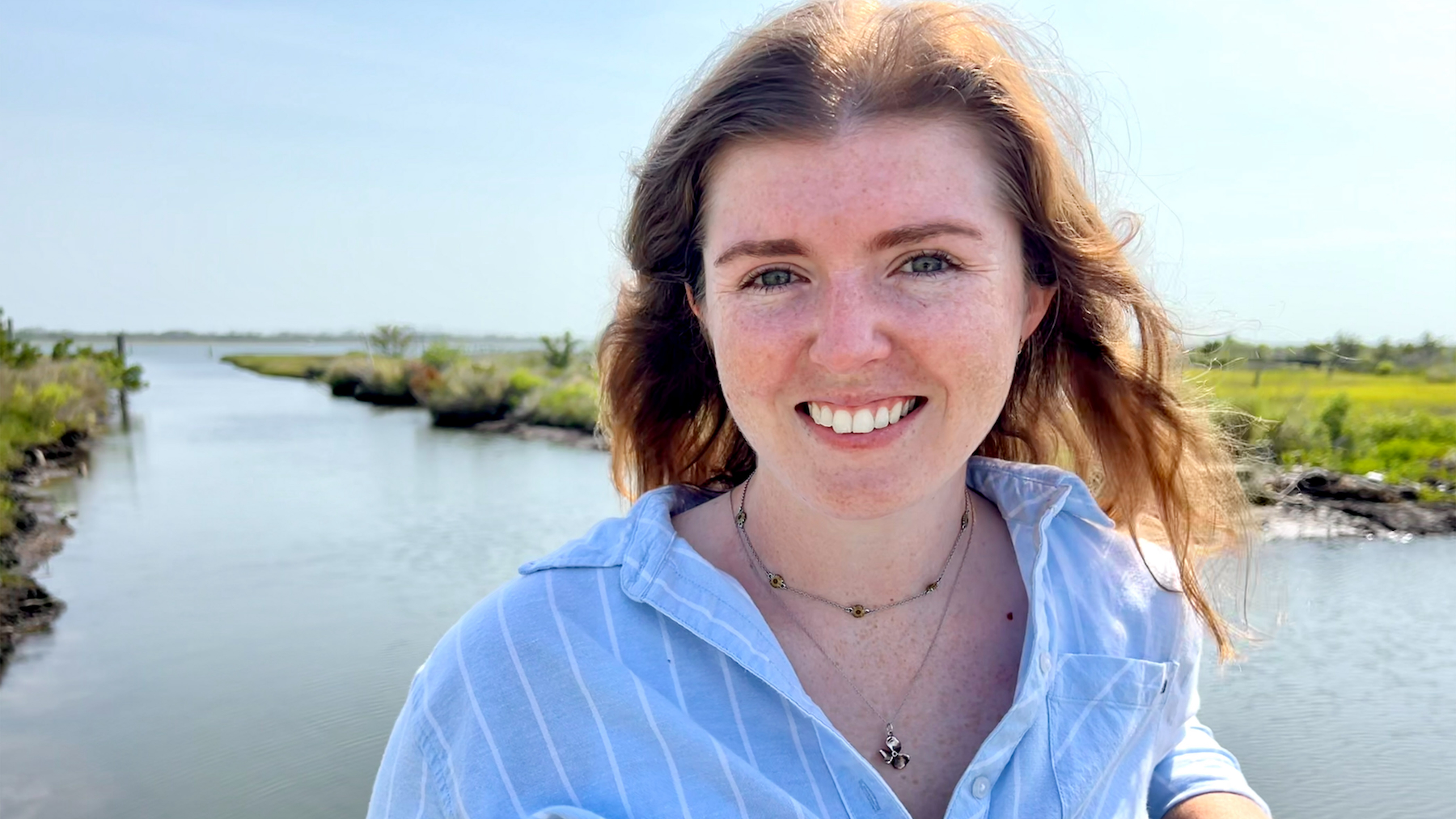CMAST conducts deep ocean research aboard Alvin

NC State University PhD student, Ian Grace and NC State Center for Marine Science and Technology (CMAST) research specialist, Melissa LaCroce, recently dove in the deep-sea submersible Alvin at methane seeps along the continental ridge in the Gulf of Mexico. Grace and LaCroce are pictured aboard the research vessel, Atlantis, in front of Alvin, which is famous for finding the Titanic wreck in 1985.
According to the Woods Hole Oceanographic Institution, which operates Alvin, “It is one of the most recognized and the most widely used deep submergence vessels in the world and the only one in the U.S. capable of carrying humans into extreme ocean depths and conducting complex scientific study of the deep ocean and seafloor.”
Alvin conducts an average of nearly 100 dives a year. These dives not only provide essential ocean research, but also training for new generations of scientists to address global ocean-related issues, as well as understand and manage essential marine resources. For example, PhD student, Grace, will be studying the geochemistry of deep-sea mussels collected on the Alvin dive to infer larval dispersal.


